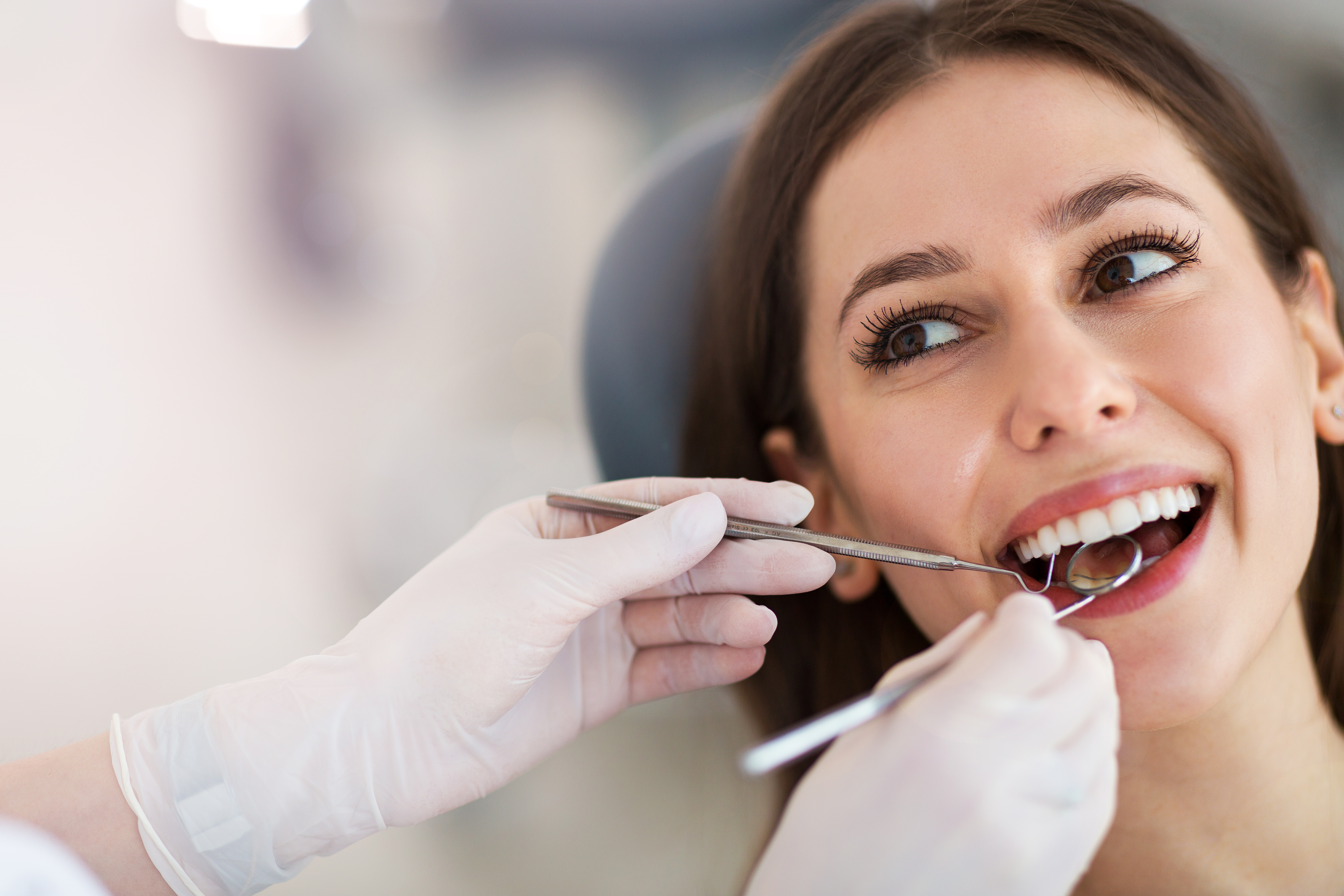
It’s important to see your dentist for a check-up every six months.
Everyone’s schedules are packed — between work and school, it can be difficult to find the time to book and stick to regular dental appointments. But if you want to take care of your overall health, and enjoy a healthy and beautiful smile in the long term, it is essential that you see your dentist for check-ups and cleans every six months. Attending a check-up could be the difference between a simple filling and a much more complex (and expensive) treatment down the line. Read on to find out why it is so important to go for regular dental check-ups, and what you can expect from your appointments…
What does a check-up involve?
During your dental check-up, your dentist will perform a full oral examination to assess your oral health. This examination will include checking the condition of your gums and other soft tissues; the quality and quantity of your saliva; and your tooth-to-tooth and jaw-to-jaw relationships. If necessary, x-rays will be recommended as part of your check-up. Your dentist will also take the opportunity to discuss your oral hygiene routine with you, as well as any relevant lifestyle and nutritional habits. If you have any questions or concerns regarding your oral health, this is a good time to raise them with your dentist.
If your dentist identifies any oral health issues during the oral examination, they will recommend a treatment plan for you based on your specific needs. If you come in for regular check-ups, it is often possible to resolve issues before they become more serious.
What is a professional clean?
Professional teeth cleaning is a straightforward process that helps remove plaque and tartar from between the teeth and around the gum line. Your dentist will use a specially designed scaler to remove plaque and tartar before polishing your teeth.
Your dentist may recommend fluoride treatment after your professional clean. Fluoride helps to strengthen the teeth and prevent cavities from developing as it promotes the remineralisation of the teeth. Fluoride can be applied to the teeth topically and is suitable for patients as young as three years old.
How can decay be treated?
One of the common issues identified at a dental check-up is tooth decay. This issue must be resolved as soon as possible to prevent the need for more complicated treatments at a later stage.
Tooth decay, as well as issues like chips and small spaces between the teeth, can often be treated with bonded fillings. Bonded fillings can be colour-matched to blend in well with your teeth and can be placed during a quick procedure.
If your dentist identifies a severely damaged or decayed tooth, they may recommend root canal treatment to save the tooth. During root canal treatment, the infected tooth pulp is removed from the centre of the tooth and the main body of the tooth is left intact. In some cases, a crown may need to be placed to strengthen the remaining tooth.
How can we help?
At Crookes & Jenkins Dental, we encourage our patients to come in and see us every six months. We offer a range of preventative treatments, including check-ups and cleans; advice regarding oral hygiene techniques and habits; and oral cancer screenings. We also offer a range of restorative treatments, including crowns, bridges, dental implants, dentures, fillings and root canal therapy. These treatments may be recommended in the case of severe tooth decay, gum disease or tooth loss. Your dentist will advise you on the treatment that suits you best, depending on your concern.
If it’s been a while since your last visit, please don’t hesitate to make an appointment to see us — get in touch with us here or give us a call on 07 3367 1122.
